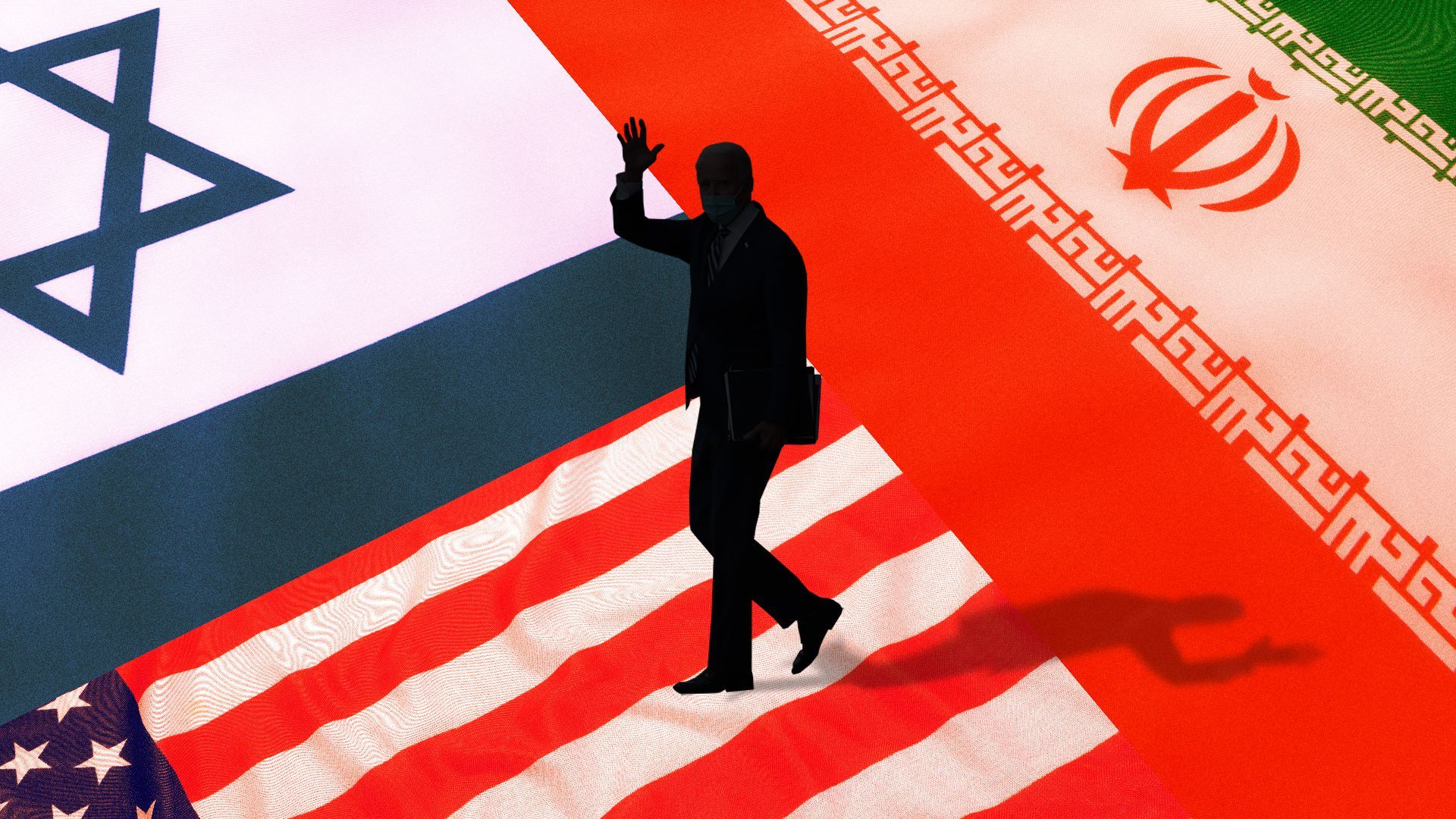Israel's plan to influence Biden on Iran
Add Axios as your preferred source to
see more of our stories on Google.

Illustration: Annelise Capossela/Axios
Israel is drafting a strategy for engaging with the incoming Biden administration on Iran, two Israeli officials tell me.
What they're saying: “We don’t want to be left out again," Israeli Foreign Minister Gabi Ashkenazi told the Knesset foreign relations committee in a classified hearing last week. He said Israel had to avoid the mistakes that left it isolated as the Obama administration negotiated the 2015 Iran deal.
- Ashkenazi said Israel's hardline approach made it almost irrelevant to the process and left it without any influence on the deal's contents, two officials who attended the hearing told me.
- Where things stand: Biden's plan is to return to the deal if Iran returns to compliance and then attempt to negotiate a broader, longer-lasting agreement.
Flashback: During the negotiations between 2013–2015, Israel hardly attempted to reach any understandings with the White House about the deal and instead campaigned against it.
- Prime Minister Benjamin Netanyahu went behind Barack Obama's back to then-House Speaker John Boehner to organize a speech in Congress opposing the deal.
What's happening: The Israeli Foreign Ministry has formed a special team, led by Ashkenazi, to focus on how Israel can remain in the loop and influence any negotiations the Biden administration might have with Iran, Israeli officials say.
- Ashkenazi told the hearing that the team's goal is to make sure any future nuclear deal with Iran contains elements that are important for Israel.
- In his view, that means convincing Biden to link the nuclear issue to Iran's missile program and regional behavior.
Behind the scenes: According to the officials who attended the classified hearing, Ashkenazi said the Foreign Ministry thinks the Biden administration will follow through on Biden's plan to push for a renewed nuclear deal.
- But he added that he believes Biden’s team is aware that the 2015 deal had weaknesses and will try to address them.
- Ashkenazi said the Foreign Ministry has already made preliminary contacts with members of the Biden transition team to establish channels of communication.
Yes, but: The current Israeli government is dysfunctional and fractured. Ashkenazi is considered one of Netanyahu’s main political opponents, and they have significant policy differences, including on Iran.
- It's unclear if Netanyahu shares Ashkenazi’s views on how to engage with the Biden administration.
- Netanyahu’s closest confidant, Israeli ambassador to the U.S. Ron Dermer, said Monday that it would be a mistake for Biden to go back to the 2015 nuclear deal.
Worth noting: Ashkenazi said in the hearing that the Iranians were preparing to renew talks with whoever won the U.S. elections, and he added: “We don’t know with which U.S. administration the deal would have been more problematic for us."
